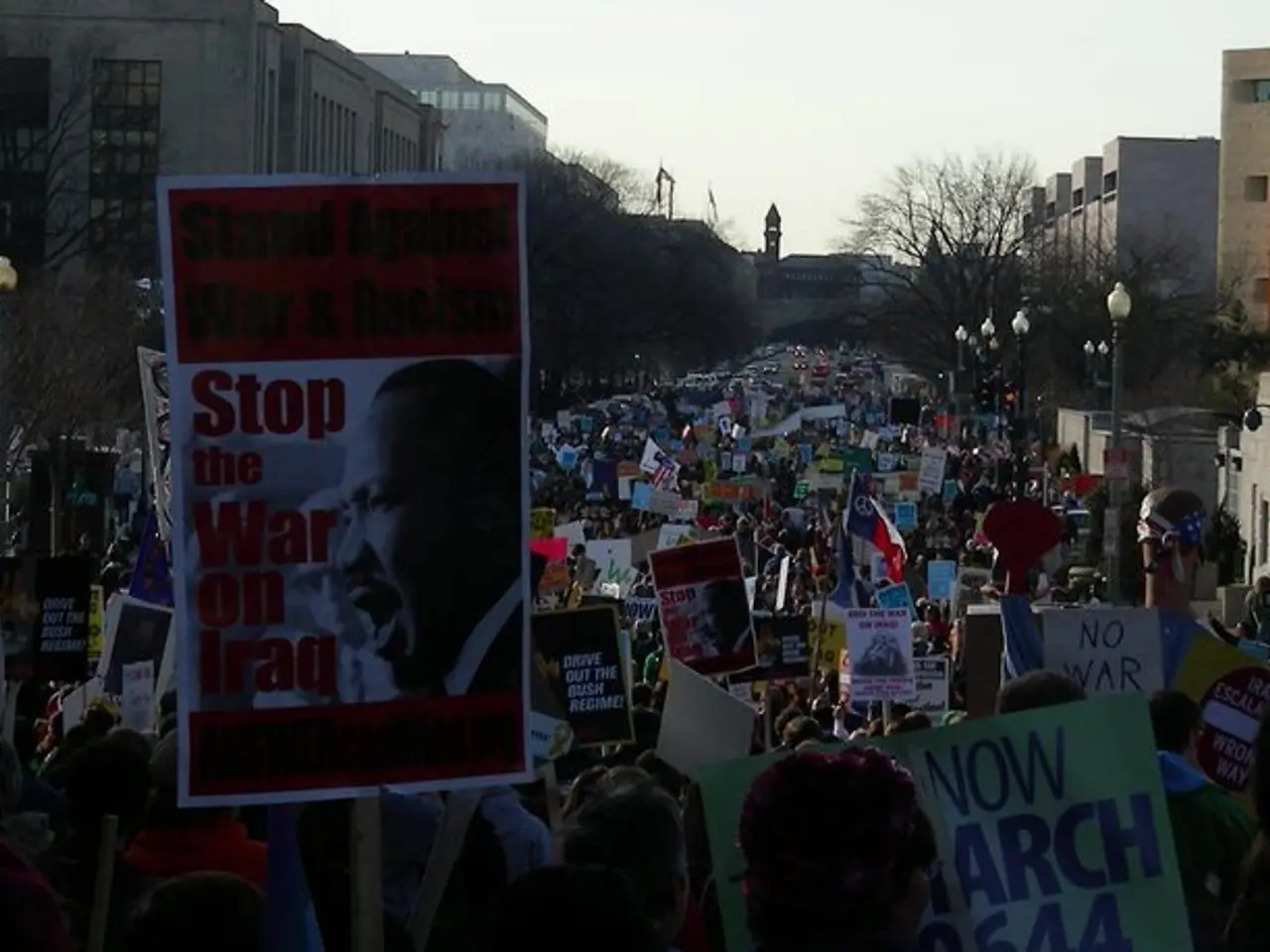Public transportation users in New York City are advocating for the Metropolitan Transportation Authority (MTA) to ban alcohol advertisements on their platforms.
In a move that has sparked significant debate, the Metropolitan Transportation Authority (MTA) has recently reversed its seven-year ban on alcohol advertising in New York City subways. This policy change, effective since June 25, allows ads for beer and other alcoholic beverages to return across various formats such as billboards, digital displays, and shuttle trains.
The decision, aimed at generating an additional $7-10 million annually for the transit system with a $20 billion operating budget, has faced strong opposition from community and health advocacy groups. Protesters argue that bringing back alcohol ads will disproportionately harm youth, commuters of colour, and people recovering from alcohol problems.
Robert Pezzolesi, from Interfaith Public Health Network, led the rally against the new policy. He claimed there is "overwhelming evidence" of alcohol marketing on public transit having a negative impact on communities of colour. A 2023 study by medical institutions, including Harvard Medical School's Department of Psychiatry, highlighted the disparities in alcohol-related deaths based on race and ethnicity in the United States, with American Indians/Alaska Natives experiencing the highest burden of alcohol-related deaths.
Elected officials, including Bronx Borough President Vanessa Gibson, have joined the call to reconsider the booze ads on transit. Gibson states that public transit should not be used as a platform to promote products that pose long-term health risks. The Interfaith Public Health Network, medical professionals, and faith leaders also stand with Gibson in urging the MTA to reinstate its 2017 alcohol advertising ban.
The controversy has led to heated debates within the MTA board, with members spending time debating whether the content of the glass in the ads is grape juice or wine. Pezzolesi stated that the decision to bring back transit alcohol ads directly harms all New Yorkers, particularly youth, commuters of colour, and residents recovering from alcohol problems.
On Wednesday, protesters gathered outside the MTA's headquarters in Lower Manhattan to voice their concerns. Jessie Lazarus, who mentioned that ads promoting eateries or restaurants with a glass of wine on the table are often rejected, also expressed her worry about the potential loss of revenue-generating sources due to a total prohibition of alcohol-related ads.
However, the MTA maintains that the new policy is essential for generating much-needed revenue. As the debate continues, it remains to be seen whether the MTA will reconsider its decision and the potential impact it may have on vulnerable communities.
The heated debate surrounding the MTA's policy change allows ads for alcoholic beverages in New York City subways has led to concerns about mental health and wellness, particularly among youth, communities of color, and people recovering from alcohol problems. Health advocacy groups, including the Interfaith Public Health Network, argue that alcohol marketing on public transit negatively impacts these communities, a claim backed by studies such as the 2023 study by Harvard Medical School's Department of Psychiatry. To address these concerns, elected officials, like Bronx Borough President Vanessa Gibson, call for a reconsideration of alcohol ads on transit, citing the long-term health risks associated with these products.




